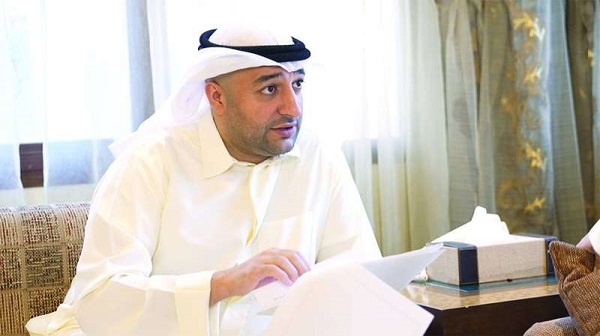Dawood Marafi, a member of the Parliamentary Business Environment and Small Enterprises Committee, emphasized the significance of the proposed amendment to the National Fund for Small and Medium Enterprises Development Law, highlighting its role in safeguarding entrepreneurs.
He also put forth suggestions to enhance the business landscape and made it clear that he doesn’t receive funding from the fund and has no personal vested interest; rather, he recognized the “existing challenges” faced by people on the ground, stressing the potential consequences of not amending the law, including the potential dispersal of families, reports Al-Rai daily.
Speaking “On the Agenda” program, Marafi explained his rationale for rejecting the state’s general budget and the government’s action plan. His rejection stemmed from the way the program was presented, lacking the anticipated alignment with the overall government agenda before budget discussions.
He clarified, “The unfortunate aspect is that the government introduced the budget in this manner without integrating it with the government’s action plan.” He noted that the government should be accountable based on the action plan it put forward over a four-year period. Thus, his rejection of the budget followed naturally from the misalignment.”
He underlined that his role isn’t solely about rejecting proposals; rather, he aims to course-correct. According to him, the government’s action plan should intricately link with the budget and its aspects. He found deficiencies in the plan, which led to his rejection.
He stressed that his rejection wasn’t for the sake of opposition alone, but for the purpose of rectification, saying being a member of the council obliges him to address any perceived wrongs.
Marafi expressed his view that the government’s action program didn’t adequately address the contemporary concerns of citizens. He highlighted a pivotal issue that lacked attention — the societal mindset, which encompasses various criteria and underscored the necessity for program laws related to fostering an entrepreneurial environment and the government’s long-term vision.
These, he added, would tackle previous mismanagement issues and motivate youth to partake in entrepreneurship, particularly in small and medium enterprises, areas that the state should encourage young people to pursue.
He emphasized, “Supporting young individuals is a responsibility, and the program should include harmonious laws to facilitate this, but unfortunately, we have not seen such provisions in the program.”
Speaking about the global economic context, Marafi asserted SMEs are the foundation of most international economies. Regrettably, in Kuwait, the economic structure is inverted, with governmental companies often at the base due to distrust of the private sector.
Marafi believes that reforming the tender law is imperative, emphasizing that small projects could create a promising economic atmosphere, provide job opportunities and leverage Kuwait’s international connections for exporting projects.
He criticized the overreliance on oil as the sole revenue source and questioned the claimed diversification efforts, and noting the struggles of local industrialists, he argued that despite laws intended to boost state income, these laws have inadvertently undermined the industrial environment, which he found unacceptable.

















